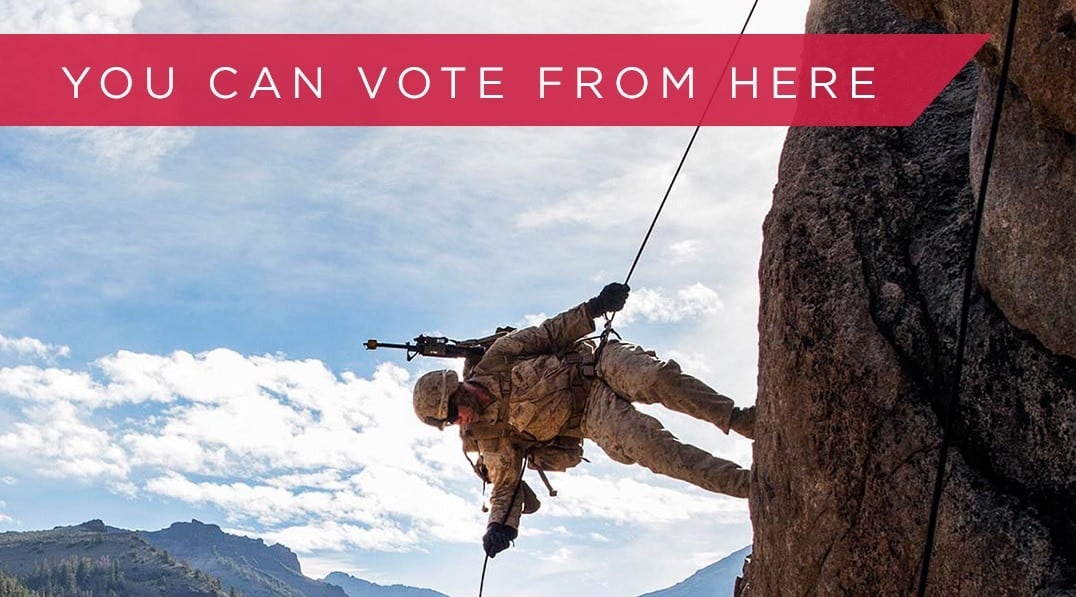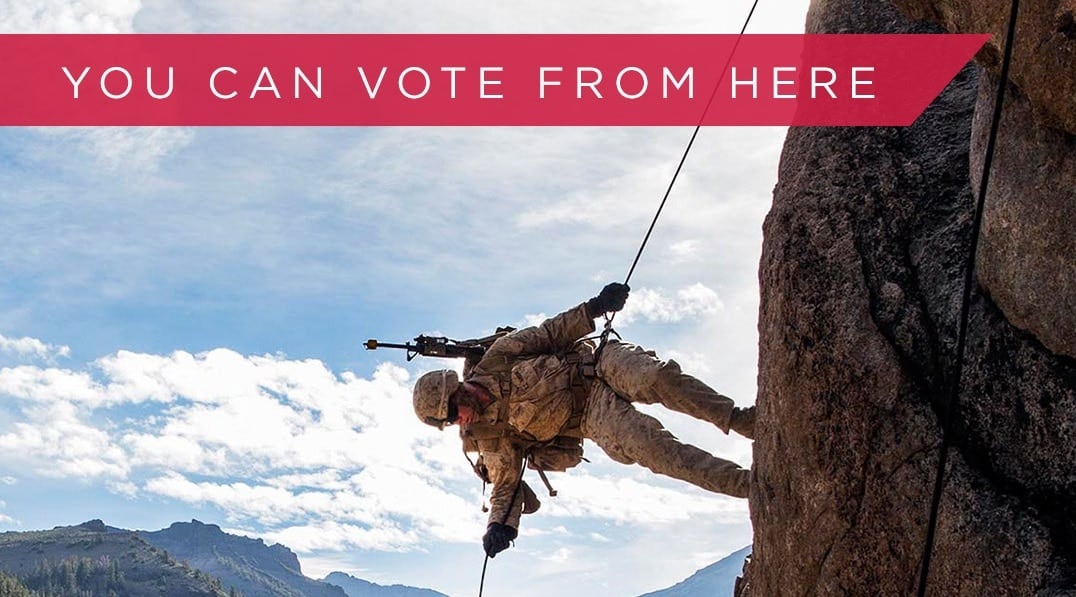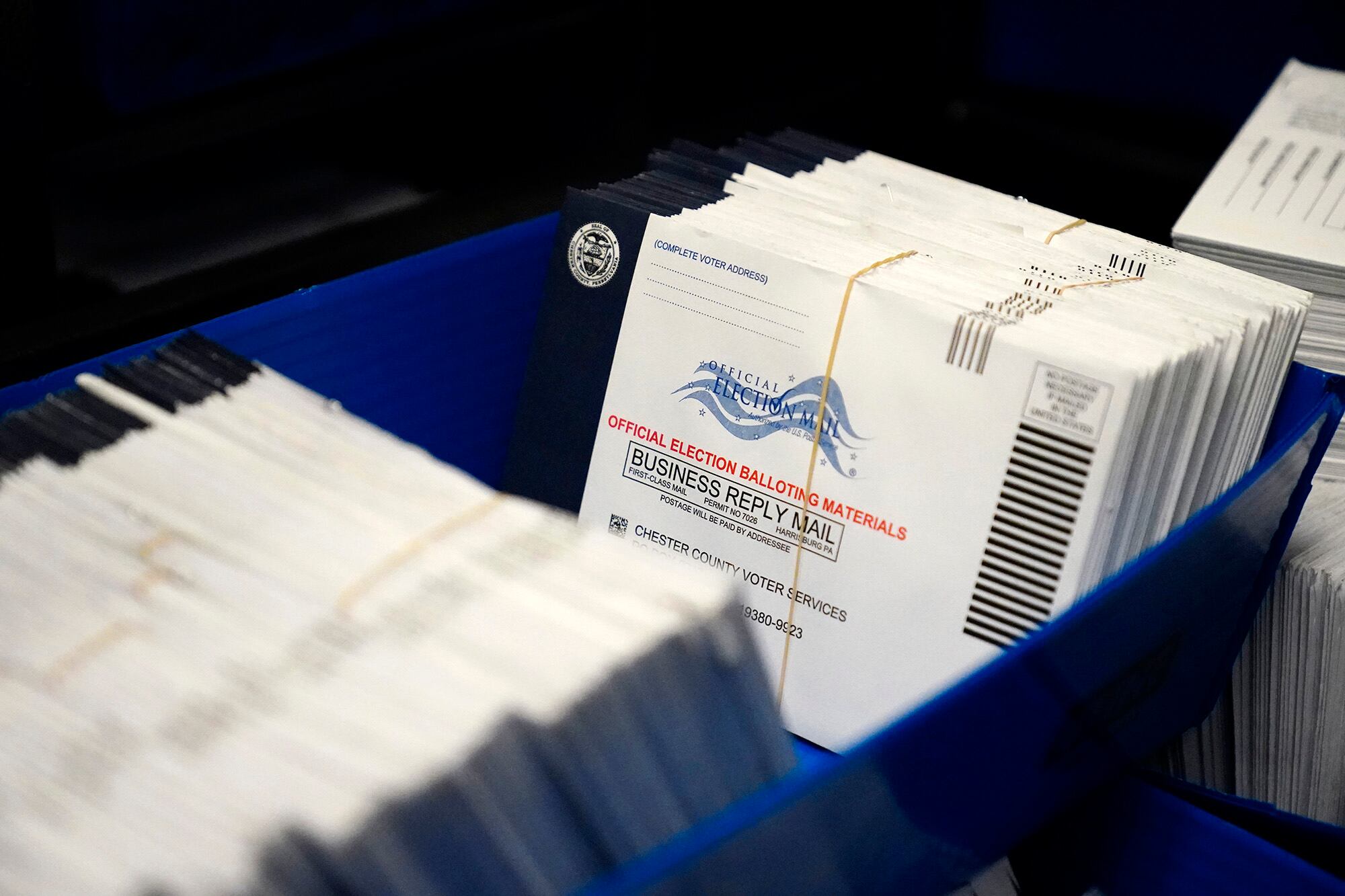A group of election security experts is urging lawmakers to drop plans in the annual defense authorization bill which would allow online ballot casting for troops serving overseas, saying the security concerns outweigh the potential benefits.
“There are solutions to improve military and overseas voting without expanding dangerously insecure voting technology,” the group wrote in a letter to members of the Senate Armed Services Committee this week.
“We believe that servicemembers deserve the highest standard of safe and verifiable voting. For the foreseeable future, internet voting cannot meet that standard, and places military voters’ votes — and the trustworthiness of elections themselves — at risk.”
The effort, which includes groups like Protect Democracy and the U.S. Vote Foundation as well as 27 former state election officials and academics, comes as the Senate is preparing to complete its draft of the massic defense policy bill in the next few weeks.
RELATED

House lawmakers passed their draft last month, and included provisions to provide “end-to-end electronic voting services for absent uniformed services voters” in locations with limited postal options.
The language would not immediately allow online voting from locations outside to troops’ home states, but would begin developing plans for some time of ballot delivery via the internet.
Outside advocates say the existing technology for such an effort simply isn’t secure enough to consider the idea.
“At a time when election security and public confidence of our elections are under attack, increased electronic return of voted ballots… is not safe or secure, and will undermine confidence and trust in elections,” the group wrote.
Ballot delivery for troops living out-of-state and out-of-country has been a challenge in the past, especially for troops in remote combat outposts. One of the major obstacles has been the small window in some states — as little as a month — given for voters to receive a ballot, fill it out and send it back in for their tally to be counted.
Officials from the Federal Voting Assistance Program said about 47 percent of active-duty military members — about 660,00 individuals — voted in the 2020 election, the majority through absentee ballots. That’s roughly the same percentage as in 2016, the previous U.S. presidential election.
But the agency estimates another 90,000 troops who requested absentee ballots for the election never received one, or were unable to return them in time to be counted.
Online voting has been touted as a possible solution to those barriers. Already, four states — Arizona, Colorado, Missouri and North Dakota — allow some voters to electronically submit their ballots so they can be recorded. West Virginia has a mobile voting app available only to state residents currently living overseas.
Nineteen other states allow certain voters to email their ballots. Nineteen others specifically prohibit any electronic transmissions of the votes.
RELATED

In lieu of internet voting options, the elections advocates wrote that lawmakers should consider ways to ease voter registration for troops, improve ballot delivery processes and push for an extension of state deadlines for receiving completed ballots.
“The technology to return marked ballots securely and anonymously over the internet does not exist,” the group wrote. “Many studies have reviewed specific internet voting systems and consistently all have found that despite their claims of innovation, these systems have fundamental vulnerabilities.”
After the Senate finalizes its draft of the authorization bill, lawmakers from both chambers will begin reconciling the differences in the two drafts in hopes of crafting a final bill before the end of December.
The authorization bill contains hundreds of spending priorities and policy changes, including the annual pay raise for troops and sweeping changes to how the military justice system handles sexual assault cases.
Leo covers Congress, Veterans Affairs and the White House for Military Times. He has covered Washington, D.C. since 2004, focusing on military personnel and veterans policies. His work has earned numerous honors, including a 2009 Polk award, a 2010 National Headliner Award, the IAVA Leadership in Journalism award and the VFW News Media award.




